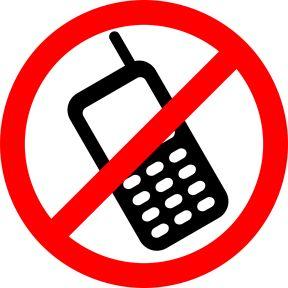Is There a Link Between Materialism and Nomophobia? A new study examines people who fear being without their smartphones. Reviewed by Lybi Ma

Using a smartphone for hours every day can foster a condition called nomophobia. Nomophobia—short for no mobile phone phobia—is the unreasonable fear of being without a smartphone or other mobile device. Symptoms include feeling anxious, restlessness, panic, sweating, tremors, and abnormal breathing.
According to a recent review of 52 studies, about 50 percent of mobile phone users worldwide show moderate symptoms of nomophobia, with another 20 percent showing severe symptoms (Jahrami and others., 2022).
Although cases of nomophobia can be found everywhere, people in different countries may have different reasons or motivations for wanting to stay close to their mobile phones. One possible motive is materialism, the personal tendency to attach great value to possessions and acquisitions (Richins and Dawson, 1992).
A Cross-National Study of Materialism and Nomophobia
In a study published last month in the Journal of Cross-Cultural Psychology, an international team of researchers led by Zhen Li examined the relationship between materialism and nomophobia among young people in Brazil, China, France, and the United States (Gentina, Maille, and Li, 2023).
Why those four countries? First, almost everyone in those countries owns a mobile phone: 87 percent in Brazil and China, 89 percent in the United States, and 92 percent in France. Second, studies have found that most young people in those countries are dependent on their phones, addicted to their phones, or spend more than four hours a day on their phones. (In one study, 81 percent of young Chinese said they checked their phone in the middle of the night.) Third, the selected countries are geographically diverse (four countries, four continents) and economically diverse (France and the U.S. are developed nations; Brazil and China are emerging nations).
The four countries also have different cultural orientations. According to Li and her colleagues, China is a collectivist society steeped in Confucian values related to hard work and maintaining face. Brazil is a moderately collectivist society that values pleasurable activities. France is an individualistic society that emphasizes the overall quality of life. The United States is a highly individualistic society that emphasizes the consumption of material goods and services.
As part of a marketing survey, Li and her team recruited 1,326 young people—more than 300 in each country—from different regions inside each country. All participants were members of Gen Z between the ages of 16 and 24; about half were female.
Participants completed two questionnaires, the nine-item material values scale (MVS) and the 12-item NMP-Q, which measures nomophobia. The MVS includes statements such as “The things I own say a lot about how well I’m doing in life” and “I’d be happier if I could afford to buy more things.” The NMP-Q assesses the degree to which a person fears being unable to make instant contact with people, being disconnected from one’s online identity, and losing the convenience of having a smartphone. The NMP-Q includes items such as “I would feel anxious if I could not check my email messages.”
Different Predictors in Different Countries
Li and her colleagues discovered that characteristics of nomophobia were moderately present in all four countries. They also found that French participants as a group were slightly less nomophobic than Brazilian, Chinese, and American participants.
Sophisticated data analyses revealed that higher levels of materialism were associated with higher levels of nomophobia, although the kind of materialism that predicted nomophobia was different in different countries. Specifically, Brazilians who said they need possessions to be happy reported higher levels of nomophobia. In contrast, Chinese who said possessions are indicators of success reported higher levels of nomophobia. In France and the U.S., participants who said possessions are central to their identity reported higher levels of nomophobia.
In plain language, the study found that young people in Brazil who believe they need their phones to be happy were more likely to fear being without their phones. In China, it was the young people who believe they’ll be seen as less successful if they don’t have a phone. In France and the U.S., it was the young people who believe they need a phone to manage their online profile, a central feature of their identity.
Research on nomophobia is at the beginning stages. Li’s cross-national study is an important reminder that culture matters. In this case, a new psychological phenomenon—nomophobia—is prevalent in four countries, but the reasons behind the fear are different in different countries and linked to longstanding cultural values and beliefs.
- Questions and Answers
- Opinion
- Motivational and Inspiring Story
- Technology
- Live and Let live
- Focus
- Geopolitics
- Military-Arms/Equipment
- Sicherheit
- Economy
- Beasts of Nations
- Machine Tools-The “Mother Industry”
- Art
- Causes
- Crafts
- Dance
- Drinks
- Film/Movie
- Fitness
- Food
- Spiele
- Gardening
- Health
- Startseite
- Literature
- Music
- Networking
- Andere
- Party
- Religion
- Shopping
- Sports
- Theater
- Health and Wellness
- News
- Culture

